- Home
- Andersen Prunty
Failure As a Way of Life Page 6
Failure As a Way of Life Read online
Page 6
“Would you be able to take me to work?”
“Sure, man. It might be a few minutes. Wanna just blow it off? Go get some beers?”
“I really need money right now.”
“Okay, man. I’ll be there.”
I sit on the front porch step and fight the urge to cry.
When did it come to this?
We live in, like, the third saddest neighborhood in Dayton. Looking at it this way seems almost too positive, like there are still a couple of rungs to fall. I briefly think about the time I lived with Callie in Twin Springs. It’s something I don’t let myself think about that much.
Most of the houses on our street are rentals and maintained to the lowest common denominator of city regulations. This doesn’t really bother me too much. If it were up to me, grass and trees and shrubs could take over everything. The more houses I can see, the more depressed I become. With houses come owners—these sad, morbidly obese people wandering out with their tiny yapping dogs, not a single shred of joy or kindness on their faces. And I shrug and try to tell myself it’s because they’ve had rough lives so, due to the fact that I live around them, I am one of them and shouldn’t be too judgmental. And if the houses don’t have occupants it’s because they’ve been condemned, foreclosed upon, or the owners have died from old age or an overdose so the empty houses themselves are symbolic of the dark fate awaiting people who live here.
I scratch furiously until it burns and dead skin is impacted beneath my fingernails.
It wasn’t like Callie and I had any more money when we were living together than I have now. Still, my memories of that time seem bright and happy. I worked at Dr. Jolly’s. She worked part-time at both a bookstore and a cafe in the town. She was also a member of Team Klaus. She was Klaus Yellow. Most people who weren’t familiar with Team Klaus assumed it was four dudes, but it was actually three women and one man. They toured fairly often and I went along when I could afford to take the time off. I got a lot of writing done when I couldn’t go with them. When Callie was home we spent our evenings reading, drinking beer, and watching horror movies and staying up late into the night talking. We spent our days off making good food and hiking the trails surrounding Twin Springs. It felt good. It felt healthy. And I had trouble thinking of another time in my life when I’d been happier.
As with all things, I should have known failure was right around the corner.
Of course it was mostly my fault—okay, it was all my fault—but it was probably my entire life that led up to that extremely poor decision and, while I take full responsibility, I still can’t help but think there is some cumulative effect that led to it. Like I’d never really been allowed to be happy and, when finding myself happy, couldn’t help freaking out about it.
My life has mostly been a series of lows. Perhaps that’s why this current period seems to be particularly brutal, because it follows such a high—possibly the only high point in my life. And I’m so self-loathing I tell myself I should be happy I at least had that couple-year period.
The Cadillac I’d seen parked in front of the house the one day—I was pretty sure it was the same one, not a lot of Cadillacs in the neighborhood—drives by the house and, because it’s a dead end, has to conspicuously back into the driveway and go back the way it came.
A few minutes later it stops at the end of one of the perpendicular roads before turning left and continuing away from the house.
I glance over at Mapes’s house and his blinds are parted. I can’t see him but imagine him in there watching me.
I feel surveilled.
Gus finally shows up what feels like two hours later.
Tarot is in the truck with him.
I open the door and she scoots over. The cab smells like patchouli, cigarette smoke and, maybe, sex.
I’m slightly disappointed Tarot is with him. Not because I have any problems with her. Clearly, my Godwater cure didn’t work so I’d thought up an alternate plan and am not sure I want to share it with anyone but Gus.
“Thanks, man,” I say as he backs out onto the road. “Hey, Tarot.”
“Hey, man,” she says. She probably doesn’t know my name.
I check the side mirror to see the black Cadillac ominously slide onto my street and park in the driveway.
Alice must be really curious about cable.
“You working today?” I ask Gus.
“Nah. But Tarot has to. She works at Thing. Didn’t Callie work there?”
Again I fight the urge to break down and cry and just say, “Yeah. Mason still working there?”
“Sure is,” Tarot says.
“Still miserable?”
She laughs a little. “That’s Mason. He’s all right, I guess.”
As with nearly everyone living in Twin Springs, Mason was some form of part-time artist. Or as was the case with most of the people there, a full-time artist who had to do other things to live. Actually, most of the people there either had money or came from money and just identified as artists because it was better than doing nothing. In Mason’s case, he was a writer. Unlike me, he had a book on Amazon and everything. Even though he only had one it seemed to have a lot of reviews, meaning people had bought it at some point in time, and this created a lot of jealousy and resentment the few times Callie had forced me to hang out with him. He seemed to be completely blocked after the one book, though, and this made me feel slightly better.
“Well,” I say, “those who can’t write books sell them, I guess.” I can’t help myself. I know it’s a shitty thing to say.
“Anyway,” Gus says, “I was going to look at places around town to rent after I drop you guys off so I’ll still be around if you need me to pick you up.”
“Cool. Thanks.”
I covertly scratch myself, bum a smoke from Gus and, once we’re off 675, stare at the rolling green countryside on the way to Twin Springs.
The atmosphere at work is celebratory. In a rematch, Dr. Jolly had knocked Bims out that morning after two rounds and Bill Chappeau, a famous comedian who’d derailed spectacularly in the ’90s and chosen to hide in plain sight in Twin Springs, had come in to buy five cases of Godwater.
16
Thinking of the Future
Gus drops me off and Alice isn’t here.
I urinate and notice the rash on my cock is even worse. It’s worse over my whole body but this is what I focus on.
I have water and a can of beans for dinner.
I sit in my chair and think about how I’m going to break up with Alice. Realistically, I’d like to have sex with her at least one more time but I’m afraid she’ll notice the rash and blame me for any future STDs she gets and the rash will only be more noticeable by the time she’s off her period. She is even more petty and vindictive than me and I feel like, were she not on her period, she would also want to fuck before breaking up so I know what I’m missing out on. My mind reels. It will probably be the best sex we’ve ever had. I need to act soon.
I check the balance of my bank account and immediately cancel everything except for gas, electric, water, and my phone.
The lack of an internet connection will fuck with Alice’s work but, hopefully, this will just make her more okay with me breaking up with her.
I take a deep, shaky breath and think about doing something I haven’t had to do in nearly a decade—ask my dad for money.
I scratch my scalp and a clump of hair falls out.
17
Dad
I call it Dad’s house but he doesn’t live there alone. He lives with his new wife, Trish. My mom died a few years ago and my dad, a staunch conservative Christian most of his life, became that guy—some kind of weird bar hopper, adopting a sort of beachcomber chic aesthetic. I thought he would become a little cooler and more relaxed, but he seems to have become an even bigger asshole.
I imagined what his opening line was—“Hey, baby. I got a timeshare in Clearwater!”
This behavior landed him exactly the type of woman I
figured it would—an overly tanned, bleached blond, fake-titted divorcee with five kids of her own. Goodbye inheritance!
I’m not sure why Dad didn’t bother finding a woman who actually lived in Florida. Trish wanted to be close to her kids who lived in Ohio so Dad bought a house in Milltown, one of the most depressing cities in the area. Even though it was where he went to high school and had spent a number of his adult years, I still like to think he did it just to be sarcastic. There weren’t many good things about Dayton but if you were to strip it of those few decent things, you’d have Milltown.
Gus takes me there. I hope my lack of transportation will increase the sympathy payment I’m in search of.
“This is so cool,” Gus says in the truck.
“Seeing my dad is cool?”
“I guess. It’s been like nearly twenty years. Wouldn’t it be wild if your dad and my mom had hooked up?”
“Wild, maybe. Good? I’m not so sure.”
“You don’t talk about your dad much.”
“He’s kind of a dick. You remember. We don’t have much in common. Your mom seems nice. I can’t really say that about my dad. I mean, he meets the minimal requirements for what is societally acceptable as a decent dad. But that’s about it. I don’t know. I guess I should consider myself lucky he’s not a complete fuck-up. I mean, in the great scheme of things, I’m a way worse dad.”
“You probably do okay. I can’t even imagine what it would be like. It’s not your fault Jen’s a psychopath.”
“That’s what I keep telling myself.”
We get to my dad’s house. It’s in a middle-class section of Milltown so it’s not as depressing as it could be. I ring the doorbell. I used to just walk right in but stopped once Trish moved in.
She answers the door.
“Well, hi, Ryan!” She’s as friendly as ever. Almost bubbly. Trish is on a lot of really good medication. And also possibly drunk.
“Hey, Trish. Dad around?”
“He’s at the shooting range. You can go on down if you want.”
“I’ll wait.”
Dad turned the basement of his house into a shooting range. I’m sure this violates a number of city codes but he’s managed to soundproof it in such a way you can’t really hear the shots outside the house.
“C’mon in,” she says. She glances almost flirtatiously at Gus and says, “Who’s your friend there?”
“Oh, this is Gus. Gus, Trish. Trish . . . Gus.”
“Hi Gus.” She looks back at me. “Wait till Malinda gets a load of him.”
“She around?” I say just to sound polite, to make it sound like I’m interested in seeing her again, which I’m not. All of Trish’s kids are horrible.
“She’s probably in her room. She’s the last one at home.”
The other four are busy advancing in their careers as criminals and drug addicts. The ones that aren’t already in prison, anyway.
We step into the house, a muffled stream of what sounds like semi-automatic gunfire greeting us.
I imagine Malinda in her room with earphones on, trying to drown out the lunatic downstairs. I’m thankful my father was not retired when I was a teenager. I didn’t have to deal with him a lot.
We go inside and sit around the dining table located at the end of the family room. The giant screen TV is on and we all stare hypnotically at it. I think maybe I should go down to the shooting range to talk to Dad. It might be the only chance we’ll have to be alone. But I can’t. Guns make me anxious and slightly nauseated. It’s an irrational fear. I worry some part of my brain is going to think it’s a really good idea to point the gun at myself or possibly even someone else and pull the trigger. It’s not even really an overwhelming urge. Just the fact it’s a possibility is enough.
We watch the TV. It’s a reality show called Drunk and Out of Control. It centers around a washed up sitcom star from the ’90s, his much younger wife, and their two teenage children—one boy and one girl. The arc of this episode is that the father has shit the bed sometime in the course of the evening, the brother and sister blacked out the previous night and are trying to remember if they’d made out or worse, while the harried and intoxicated mother must harangue the bedraggled staff and rustle footage from the security cameras to piece together the events of the previous evening. She’s drinking a bottle of chardonnay as the camera zooms into her bronzed and botoxed face and she exclaims, “OMG! Your guys’ drinking is making me drink!”
Trish laughs and paraphrases, “You guyses’ drinking is making me drink! I love this show. It’s so funny.”
“It hurts to watch,” I say. “They’re embarrassing themselves.”
“I like it,” she says, like her critical stamp of approval should be enough to end the conversation.
“Why?”
“I just do. I can’t believe people live like that. They’re so crazy.”
“It doesn’t make you feel dumber?”
She doesn’t answer me and I think it’s because she doesn’t want to acknowledge the truth—she couldn’t be any dumber.
I sit there for a few more minutes and feel bad for shitting all over something Trish enjoys. I try to open my mind and see what people can enjoy about it but feel like I’m dying so I get up to use the restroom.
I pee and wash my hands. The spot of missing hair on my head has grown larger and the rash has spread to my left eyelid. Soon, I think, I’ll have achieved one-hundred percent coverage. What then? Maybe I’ll transform into something, like a superhero.
I head back to the dining area, remembering my plan I need to discuss with Gus.
Malinda is sitting next to Gus, staring nearly open-mouthed at him. Even Trish occasionally looks away from the TV to eye Gus. It’s like he’s not even the same person he was a couple of weeks ago. He looks like a male model from a magazine, complete with a glossy glow and everything.
“Hey, Malinda.” I sit between her and Trish.
“Hey,” she mumbles. I don’t think she knows my name. I’m guessing when I’m not there it’s uttered exactly zero times.
She holds her phone up and takes a picture of Gus.
He glances at her, half-annoyed, and smiles it away with gleaming white teeth.
The show on the TV ends and another one starts up immediately.
Great! A marathon!
The voiceover suggests this episode is going to be about the mother trying to convince the family they don’t need to pile into the car and go to Taco Bell at two in the morning. There’s a scene of the dad behind the wheel, shouting his order and leaning his head out to vomit. His daughter is bouncing out of the sunroof, her chest blurred, shouting, “Tits out, America!”
Trish does not repeat this line. Just smiles and shakes her head.
I fight the urge to go to the bathroom again. I take a cue from Malinda and Gus and pull out my phone. Of course I haven’t missed any texts or anything and, since I don’t do social networking, I don’t really know what I’m supposed to do with it. I search ‘itchy red rash,’ click on the images tab, and spend the next several minutes working myself into a low-grade panic attack.
Eventually, Dad emerges from the basement wearing a Make America Great Again t-shirt, a straw panama hat, and yellow shooting glasses.
“Son,” he says, “whaddya need?”
All the other eyes around the table turn to me and I feel like the lowest form of life on the planet. I feel small, which means Dad must feel accomplished.
“I just . . . wanted to stop by,” I lie.
Dad has spotted Gus and his face lights up. Dad has always been more partial to strangers. I got the feeling he liked all of my high school friends better than me.
“Randy Noman.” Dad extends his hand. He doesn’t even know it’s Gus.
Gus seems taken off-guard by the formality. He stands awkwardly and says, “Gus Brightly.” It’s been so long since I’ve heard him use his last name I’d almost forgotten what it was.
Dad seems taken aback. “Wel
l, I didn’t even know it was you! Are you a model or something?”
Gus smiles and says, “Fraid not. I work with Ryan.”
“You certainly ain’t the Gus I remember.” Dad’s eyes are alight and I can tell he sees in Gus everything he wishes I could be. He turns to me and says, “Still have that girlfriend? What’s her name? Annie?”
“Alice.”
“Better keep her away from this one.” He points a thumb at Gus in an overly comic way.
“She’s, uh, she’s still around.”
“Hear from Charles lately?”
I think about correcting him—it’s Charle—but what’s the point? Dad’s only met Charle twice in the sixteen years he’s been around.
I shrug. “He’s okay, I guess. He’s having some trouble at school—”
“Bring him up here,” Dad interrupts. “Get him away from that deadbeat. Raise him right.”
I don’t have a response to this. I’m baffled that anyone who knows me—even as little as my father knows me—could possibly think I would do an even remotely acceptable job of raising a child.
“Well,” Dad says, “we were plannin on goin to dinner. How much you need?”
I lightly scratch my chest and swallow my pride. Who am I really embarrassing myself in front of anyway? Gus knows I’m poor. Dad will never think I don’t need money. And Trish and Malinda are, well, they’re both sponging off my dad, too. I guess the difference is that they don’t have to ask for it. Actually, they probably do. And Dad probably makes them feel as shitty about it as he makes me feel. So maybe their looks are empathy stares.
“Someone slashed the tires on my car. Jen’s been pestering me for more money for Charle—”
“Two hundred?” Dad has his wallet in his hand, rifling through it. He refuses to use credit cards and carries garish amounts of cash around with him. He grew up poor. This makes him feel rich. It may be one of the reasons he keeps a gun concealed on him at all times.
“You really don’t have to,” I say. This is the game we play.

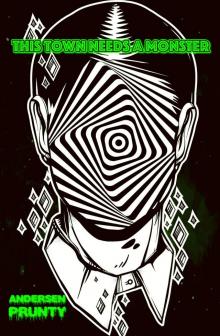 This Town Needs a Monster
This Town Needs a Monster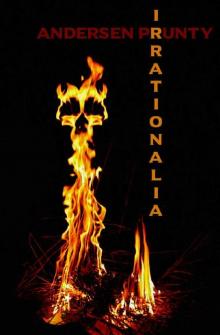 Irrationalia
Irrationalia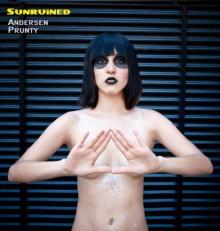 Sunruined: Horror Stories
Sunruined: Horror Stories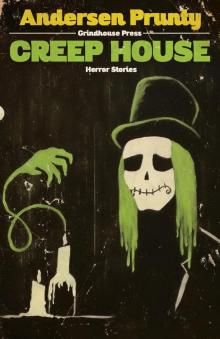 Creep House: Horror Stories
Creep House: Horror Stories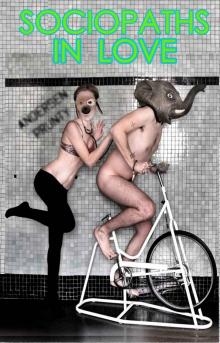 Sociopaths In Love
Sociopaths In Love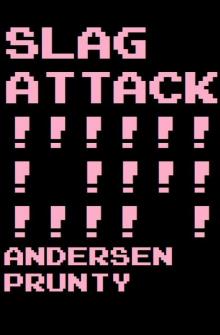 Slag Attack
Slag Attack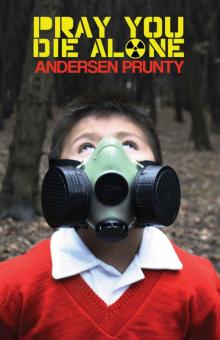 Pray You Die Alone: Horror Stories
Pray You Die Alone: Horror Stories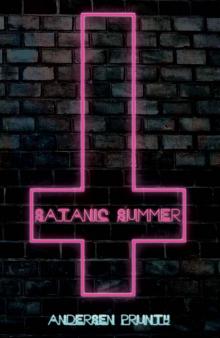 Satanic Summer
Satanic Summer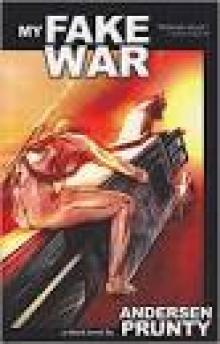 My Fake War
My Fake War Jack and Mr. Grin
Jack and Mr. Grin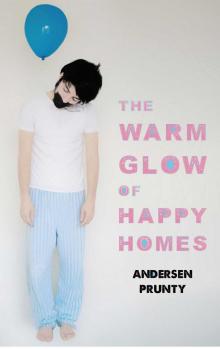 The Warm Glow of Happy Homes
The Warm Glow of Happy Homes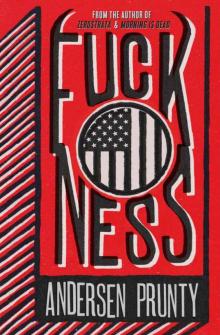 Fuckness
Fuckness Bury the Children in the Yard: Horror Stories
Bury the Children in the Yard: Horror Stories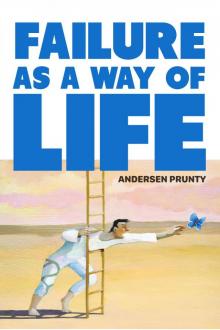 Failure As a Way of Life
Failure As a Way of Life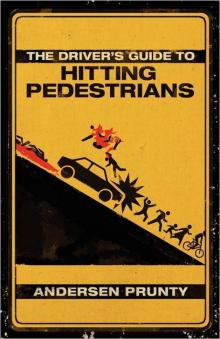 The Driver's Guide to Hitting Pedestrians
The Driver's Guide to Hitting Pedestrians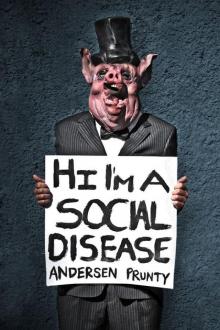 Hi I'm a Social Disease: Horror Stories
Hi I'm a Social Disease: Horror Stories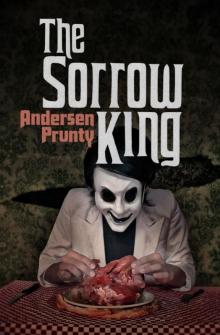 The Sorrow King
The Sorrow King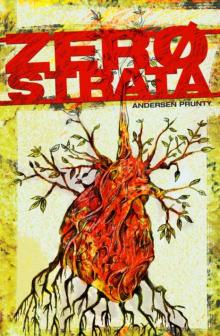 Zerostrata
Zerostrata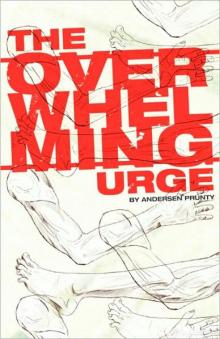 The Overwhelming Urge
The Overwhelming Urge